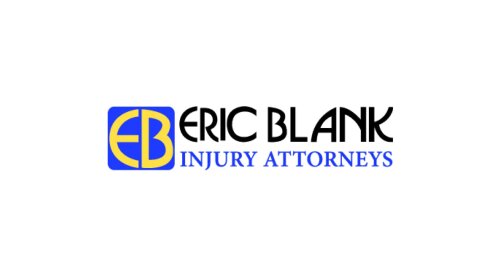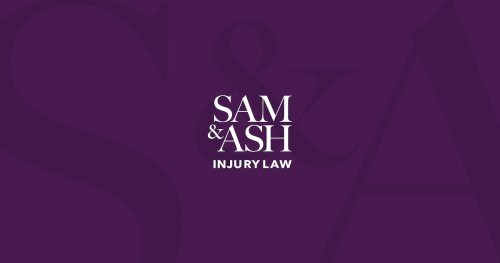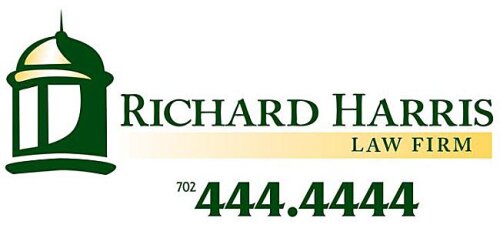Best Insurance Defense Lawyers in Las Vegas
Share your needs with us, get contacted by law firms.
Free. Takes 2 min.
List of the best lawyers in Las Vegas, United States
About Insurance Defense Law in Las Vegas, United States
Insurance defense law covers representation of insurers and insured parties when a claim or lawsuit arises that an insurance policy may cover. In Las Vegas, the majority of insurance defense work involves automobile collisions, premises liability claims, property damage, homeowners disputes, commercial liability, and professional liability. Defense counsel may be hired by the insurance company under a duty to defend, or retained directly by an insured individual or business to protect their interests in coverage, settlement, litigation, and appeals.
Las Vegas is part of Clark County, Nevada, and insurance defense work is governed by state statutes, administrative regulations, insurance contract terms, and court rules. Cases are commonly litigated in the Eighth Judicial District Court in Clark County for civil claims, and appeal routes include the Nevada Supreme Court and federal courts when federal issues arise. The Nevada Division of Insurance regulates insurers and market conduct within the state.
Why You May Need a Lawyer
Insurance defense cases can be complex, involving technical policy language, competing factual narratives, and strategic litigation decisions. You may need a lawyer if:
- You are named as a defendant in a lawsuit and your insurer assigns counsel to defend you - you need to understand your rights and whether conflicts exist between your interests and the insurers.
- Your insurer denies coverage for a claim you believe should be covered - a lawyer can analyze the policy and pursue coverage or bad-faith claims if appropriate.
- There is a potential for high exposure - serious bodily injury, large property damage, or commercial claims can carry significant financial risk beyond policy limits.
- Settlement demands or judgments exceed policy limits - a lawyer can advise on settlement strategy and protections for your personal assets.
- You face a declaratory-judgment action where the insurer seeks a court ruling on coverage - specialized defense counsel can manage both coverage and liability issues.
- The claim involves complex legal theories - professional liability, construction defects, or long-tail exposures like pollution claims often require experienced coverage analysis and defense strategy.
Local Laws Overview
Nevada law and Clark County practice affect insurance defense outcomes. Key local elements to understand include:
- State regulation and oversight - the Nevada Division of Insurance administers the states insurance laws, enforces market conduct rules, approves policy forms, and handles consumer complaints. Regulatory standards can affect claims handling practices and proofs required for coverage disputes.
- Statutes of limitations and procedural deadlines - Nevada has specific deadlines for bringing various types of claims. Deadlines can be short, and early action is essential. Timely notice to an insurer is also often required by policy provisions and state rules.
- Civil procedure and local court practice - litigation in Las Vegas follows the Nevada Rules of Civil Procedure and local rules for the Eighth Judicial District Court. These rules govern pleadings, discovery, motions, case management, and trial procedures.
- Comparative-fault principles - Nevada reduces a claimants recovery by the claimant's percentage of fault. Understanding how comparative fault is applied is important in evaluating liability exposure and settlement value.
- Insurance-specific doctrines - Nevada courts interpret policy terms, exclusions, and conditions under established rules - ambiguous terms are generally construed in favor of the insured, while clear policy language will control. Nevada law also recognizes claims for bad-faith handling of claims under certain circumstances.
- Alternative dispute resolution - mediation and settlement conferences are common in Clark County. Many courts encourage or require ADR before trial, and insurers often prefer negotiation to trial where exposure is significant.
Frequently Asked Questions
What does insurance defense counsel do for an insured or insurer?
Insurance defense counsel handles investigation, factual development, legal research, and representation in settlement negotiations, motions, hearings, and trial. When retained by an insurer, defense counsel also coordinates with claims adjusters, evaluates coverage issues, and advises on whether to defend under a reservation of rights or seek a declaratory judgment. For insureds without appointed counsel, a private attorney will provide the same litigation services and advise on personal exposure beyond policy limits.
If my insurer appoints a lawyer, do I need my own attorney?
Often the insurer will provide a defense under a duty-to-defend clause. However, conflicts can arise when coverage is uncertain or the insurer may seek to deny coverage later. In those situations, it can be important to consult an independent attorney to protect your personal interests, evaluate conflicts, and ensure that the defense strategy does not compromise coverage or future claims against the insurer.
What should I do immediately after an incident that could lead to an insurance claim?
Take prompt steps to preserve evidence and protect safety: document the scene with photos, collect contact information for witnesses, obtain police or incident reports when appropriate, and seek medical treatment if needed. Notify your insurer promptly as required by your policy. Avoid admitting fault, giving detailed statements without counsel if injuries or complicated liability exist, and altering or destroying evidence.
How does Nevada handle disputes about whether a policy covers a claim?
Coverage disputes can be resolved through negotiations, alternative dispute resolution, or court actions such as declaratory-judgment suits. Courts interpret policy language under established contract principles. Ambiguous terms are typically construed in favor of the insured. If the insurer wrongfully denies coverage, the insured may have remedies including litigation for coverage and, in certain cases, bad-faith claims.
What is a reservation of rights letter and why does my insurer send one?
A reservation of rights letter informs the insured that the insurer will provide a defense but reserves the right to deny coverage later based on certain facts or policy provisions. This allows the insurer to avoid waiving coverage defenses while still fulfilling an immediate duty to defend. If you receive a reservation of rights, consider consulting counsel to understand potential consequences and how conflicts may be handled.
How long do I have to file a lawsuit in Nevada?
Time limits depend on the type of claim and applicable statutes of limitations. Personal injury claims commonly have a short statutory period, while contract or property claims may have different deadlines. Because these time limits are strict and failure to act can bar your claim or defense, consult an attorney early to identify applicable deadlines and preserve your rights.
Can an insurer be sued for acting in bad faith in Nevada?
Nevada law recognizes claims against insurers for bad faith claims handling in certain situations - for example, where an insurer unreasonably denies or delays payment without a legitimate basis. Bad-faith claims are fact-specific and require proof of the insurers conduct, and often a showing that the insurer lacked a reasonable basis for its actions.
What happens if a settlement demand exceeds my policy limits?
If a claimant demands more than the available policy limits, the insurer may face exposure beyond the policy if it rejects a reasonable settlement within limits. The insured may be personally at risk for excess judgments. In such cases it is critical to have counsel who can advise whether to accept settlement, seek excess coverage, or pursue other strategies to limit personal liability.
How are attorney fees and costs handled in insurance defense cases?
Who pays attorney fees depends on the relationship and the case result. When an insurer provides a defense, the insurer typically pays defense fees subject to policy terms. Fee-shifting statutes or contract provisions can allow the prevailing party to recover fees in certain actions, such as specific coverage disputes or statutory claims. Consult counsel to understand potential fee exposure and recovery in your case.
What if I have a complaint about an insurance company in Nevada?
You can file a complaint with the Nevada Division of Insurance, which investigates consumer complaints and enforces insurance statutes and regulations. Separately, you may consult an attorney to explore private legal remedies, including litigation for coverage or bad-faith claims. The Division of Insurance and the Nevada State Bar can provide guidance on complaint procedures and consumer protections.
Additional Resources
Nevada Division of Insurance - state regulator for insurance companies and consumer complaints.
Nevada Revised Statutes and Nevada Administrative Code - the state laws and regulations that govern insurance and civil procedure in Nevada.
Clark County Eighth Judicial District Court - the local trial court where most civil insurance defense cases in Las Vegas are filed and litigated.
Nevada State Bar - for lawyer referral services, ethics guidance, and resources on hiring a licensed attorney in Nevada.
Nevada Legal Services and local legal aid organizations - for low-cost or pro bono assistance if you have limited means.
Local law libraries and court self-help centers - for access to statutes, local rules, and procedural forms if you are managing a matter without counsel.
Industry organizations - professional groups for insurance defense lawyers and claims professionals provide continuing education and model practices that can be helpful in understanding local defense norms.
Next Steps
If you need legal assistance in an insurance defense matter in Las Vegas, follow these practical steps:
- Preserve evidence and document events - take photos, keep records, and write a timeline of what happened while details are fresh.
- Notify your insurer promptly if required by your policy - follow policy notice and cooperation provisions to avoid coverage issues.
- Review your insurance policies to identify coverages, limits, exclusions, and notice requirements - save all policy documents and correspondence.
- Consult an experienced insurance defense attorney - even an initial consultation can clarify your rights, potential exposure, and whether you have conflicts with an insurer-provided lawyer.
- Meet procedural deadlines - respond to lawsuits, discovery requests, and court orders on time to avoid default judgments or waiver of defenses.
- Consider alternative dispute resolution - mediation or settlement may resolve the matter faster and with less expense than trial.
- If you believe your insurer acted improperly, document the conduct and consider filing a complaint with the Nevada Division of Insurance and speaking with counsel about potential legal remedies.
Remember that this guide is informational and does not substitute for personalized legal advice. For guidance tailored to your situation, contact a licensed attorney who handles insurance defense matters in Las Vegas.
Lawzana helps you find the best lawyers and law firms in Las Vegas through a curated and pre-screened list of qualified legal professionals. Our platform offers rankings and detailed profiles of attorneys and law firms, allowing you to compare based on practice areas, including Insurance Defense, experience, and client feedback.
Each profile includes a description of the firm's areas of practice, client reviews, team members and partners, year of establishment, spoken languages, office locations, contact information, social media presence, and any published articles or resources. Most firms on our platform speak English and are experienced in both local and international legal matters.
Get a quote from top-rated law firms in Las Vegas, United States — quickly, securely, and without unnecessary hassle.
Disclaimer:
The information provided on this page is for general informational purposes only and does not constitute legal advice. While we strive to ensure the accuracy and relevance of the content, legal information may change over time, and interpretations of the law can vary. You should always consult with a qualified legal professional for advice specific to your situation.
We disclaim all liability for actions taken or not taken based on the content of this page. If you believe any information is incorrect or outdated, please contact us, and we will review and update it where appropriate.















